#Leaf
Nissan to Recall 1.4 Million Vehicles Globally
Nissan is issuing a global recall on roughly 1.4 million vehicles over a handful of reasons pertaining to acceleration. Based on early reports, owners are either getting a sudden increase in throttle after shutting off cruise control or a short that kills the motor while driving. The cars in question include models like the Note, Kicks, Leaf, and Serena.
Nissan Leaf Rumored for Discontinuation [UPDATED]
In 2010, Nissan launched the first globally-marketed electric vehicle in history. Known as the Leaf, the model offered a paltry 73 miles between charges when it was introduced. But deserves loads of credit for being a useful, friendly runabout that avoided many of the strange design choices other manufacturers leveraged to set their EVs apart. Reviewers frequently praised the Nissan Leaf as a great second car for running errands, noting that it was both comfortable and had enough space to swallow up most items you’d want to snag on a trip into town.
Cash-strapped Nissan Records an Album
The year was 1981, and the frazzled mother of yours truly found herself behind the wheel more than usual. This writer was apparently screaming and bawling like a 21st century voter, and the only way to get him to conk out was to bundle him into an increasingly corroded Plymouth Volare and hit the lonely backroads of rural Canada, unsure of whether that Slant Six would stall at the next four-way stop.
It’s a situation most new parents find themselves in — and, save adoption, it’s the last legal resort to getting a screaming child to knock it off, especially now that most food safety agencies don’t allow alcohol-filled gripe water. As powertrains go electric, however, the driving experience is beginning to change.
Worried that these child-lulling drives might prove fruitless in a model like the Leaf, Nissan has recorded an EP to accompany the trip. I’m listening to it now.
Whatever You're Into: Nissan Reveals Pricing for 2019 Pathfinder, Leaf
Nissan recently announced pricing for the 2019 Pathfinder and, if you’re inclined toward something smaller and greener, the Leaf. While the Pathfinder sees a modest increase in pricing, the Leaf trots onward with its current MSRP unchanged.
The 2019 Nissan Leaf S retains its former $30,795 base price, which incorporates a $895 destination fee. However, depending on where you live, there’s federal and state tax credits to reward your virtuous decision to purchase an electric vehicle. If you’re worried about snagging that deal before Nissan hits 200,000 cumulative sales of plug-in autos, don’t be. Leaf sales stagnated over the last three years, leaving you with at least another 12 months before you’ll have to start tugging on your collar.
More Power Awaits Buyers of the Long-range Nissan Leaf
Many years ago, back when full-on electric cars were rare oddities, I drove an early first-generation Nissan Leaf in power-sapping Eco mode. It was, to this day, the slowest vehicle I have ever driven. The driver of a 1980s Tercel with a three-speed automatic could have handed me my ass in a stoplight drag race.
That was then, and this is now. The second-gen Leaf, which bowed for 2018, offers buyers 142 horsepower and a generous helping of low-end electric grunt to go with their 151 miles of range. But there’s another beast arriving for 2019 that should satisfy those looking for more miles and more horses.
Nissan to Unveil Leaf GT at Tokyo Auto Salon
We drove the new 2018 Nissan Leaf in California earlier this month, finding it to be an effective foil to the Prius Primes and Chevy Bolts of the world. With far more mainstream styling than its predecessor, the Leaf stands a good chance of hooking customers who would have never considered the old model.
Now, we’ve learned the company will bring a Leaf GT concept to the Tokyo Auto Salon in early January, a Japanese event most easily described as a fantastic mashup of CES and SEMA.
2018 Nissan Leaf SL First Drive - Powering Back From Obsolescence
The previous-generation all-electric Nissan Leaf (technically “LEAF,” but that acronym sends my MacBook Air into a snit befitting Peter Frampton), with toenail clippings for headlights and a face only a mother could slug, has historically done very well for itself, selling well over 100,000 units in America since its introduction eight long model years ago.
For 2018, the Japanese automaker set out to prove an all-electric car doesn’t have to look like a science experiment. In the past, new models were denoted by the holy trinity of longer, lower, and wider. In the EV sphere, that trio takes the form of longer (range), lower (charge times), and wider (infotainment screens).
Nissan Really Hopes Free Juice Will Be the Leaf Blower It Needs to Clear the Lot
The Leaf is nowhere to be seen — unless you’re staring at a Nissan dealer lot — and American buyers are barely budging their electric vehicle take up rate. Nissan, it seems, needs another incentive to sweeten its EV pot.
The solution? More free electricity. It’s not a new idea (actually, it’s an expanded version of two-year-old promotion), but the automaker probably figured, why the hell not?
Next Leaf Will Go 200-Plus Miles On a Charge: Nissan Exec
Nissan doesn’t want its aging Leaf electric hatchback to be left in the dust when the long-legged Chevrolet Bolt and Tesla Model 3 hit the market.
To counter the threat, Nissan will double the size of the Leaf’s battery, giving it a range of more than 200 miles, the automaker’s green chief told Autoblog. Exactly when the upgraded EV will show up remains a mystery.
Colorado Now the Best State for Tax Dodgers to Buy EVs
Electric cars take considerable flack from average consumers for being far too expensive in comparison to gas-powered competitors — and that’s before you realize it takes years to make that money back in fuel savings. Combine those two points with range anxiety and you’ve summarized the major hangups normal folk have with electric-vehicle ownership today.
The U.S. Federal government offers tax incentives, in the form of income tax rebates, to ease the monetary pain of EV ownership for average buyers. Individual states have joined the rebate incentive bandwagon, too. However, the state of Colorado is changing its tune, and will now gift you an incentive before you even drive off the dealer lot — no tax return required.
Meow, Nissan: Automaker Slaps Tesla in New Leaf Ad
Nissan is trying to play Tesla’s lengthy Model 3 waiting list to its advantage.
A print ad that landed in the country’s most-read newspapers this morning is playing up the Model 3’s wait times, according to Automotive News, and encouraging EV buyers to go the faster route by buying a Leaf.
There’s nothing subtle about the ad, which would have been green-lit by Nissan’s intimidating sales and marketing head Christian Meunier. Since taking on the role in January, Meunier has laid out an aggressive marketing strategy, meaning the Leaf spot could be the first of many cheeky ads.
There's a (100-Mile) Ford in Your Future, But That's About It
Ford Motor Company is hitting the brakes in the electric vehicle range war.
While competitors like Tesla and General Motors are busy preparing EVs with ranges of 200 miles or more, Ford is staying put at the 100-mile line, Automotive News has reported.
Though it plays well in the plug-in hybrid game with models like the C-Max and Fusion Energi, the automaker’s only “pure” EV — the Focus Electric — has lingered near the back of the pack in terms of range since debuting in 2012.
Nissan Wants More EVs, Might Produce an Electric Sports Car
Is there a Nissan competitor to the BMW i8 in the works? A senior executive has hinted there might be.
Speaking to Auto Express, senior vice-president Shiro Nakamura said an electric sports car is one option the automaker is considering for its upcoming modular vehicle platform.
TTAC News Round-up: Santa Fe Sports in Alabama, Tiguan With A Tether, And GMC Acadia Bows?
Is there a Santa Fe, Alabama? If not, there will be soon.
That, Volkswagen’s Tiguan + electron, who’s gonna buy all these electric cars, and you don’t really need a gas delivery service, people … after the break!
Nissan-Renault Say They'll Have 10 Self-driving Cars by 2020
Nissan-Renault announced Thursday that it would have 10 cars on sale worldwide with autonomous features ready by the end of the decade.
Considering the photo provided by the automaker is of a Nissan Leaf, we can begin there.
One.



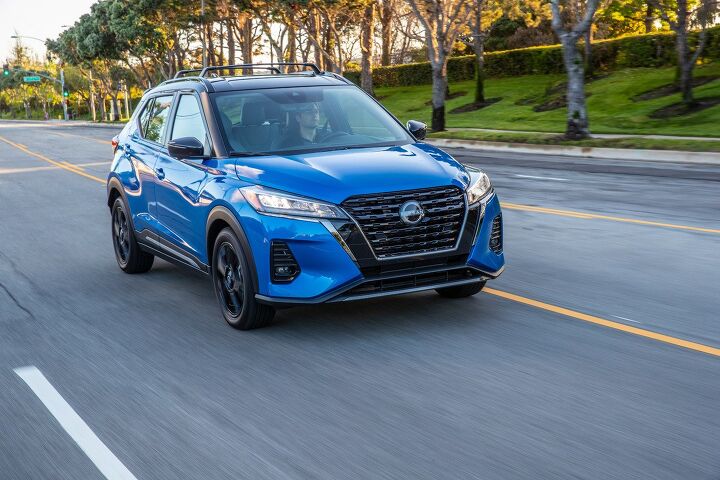
![Nissan Leaf Rumored for Discontinuation [UPDATED]](https://cdn-fastly.thetruthaboutcars.com/media/2022/07/19/9148523/nissan-leaf-rumored-for-discontinuation-updated.jpg?size=720x845&nocrop=1)
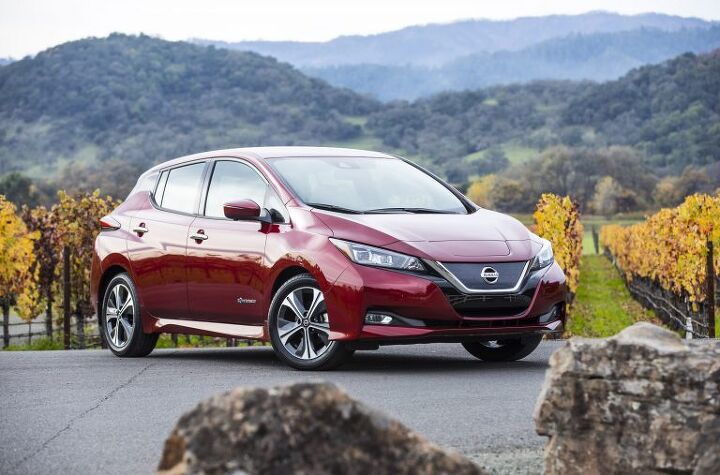


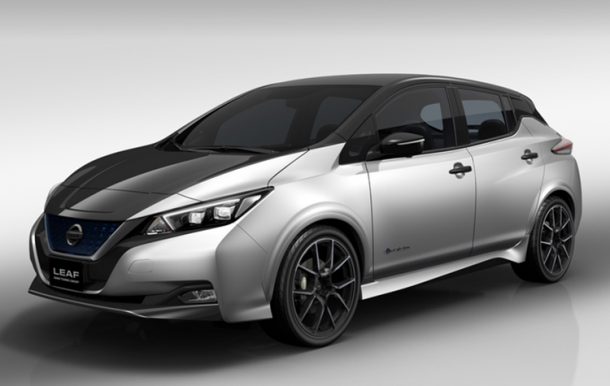
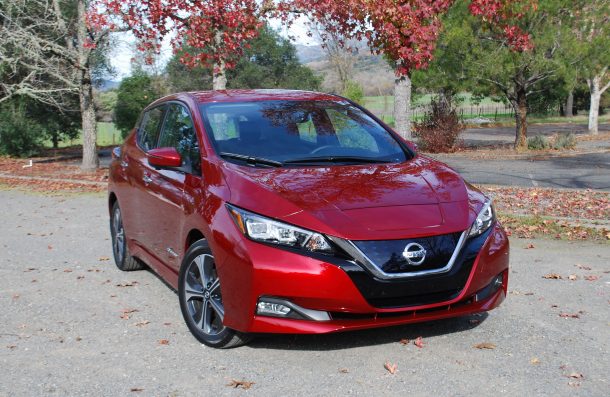




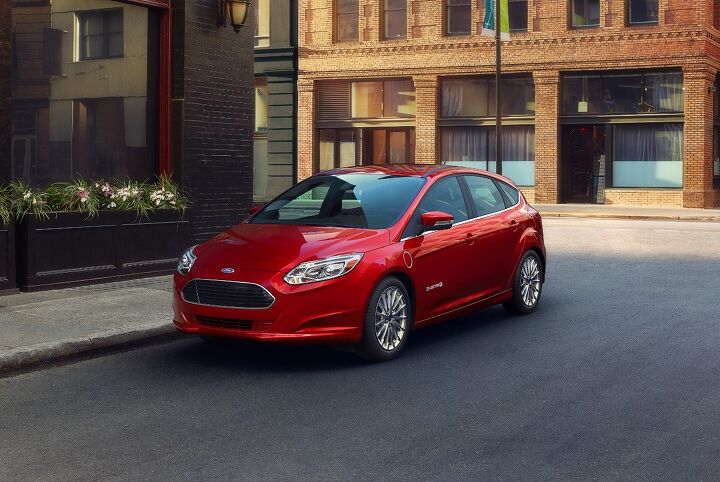
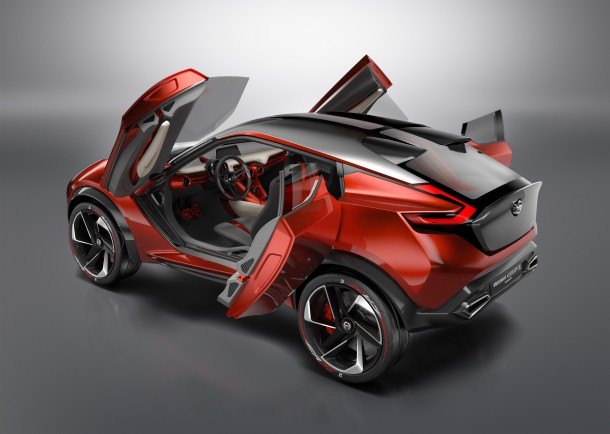













Recent Comments